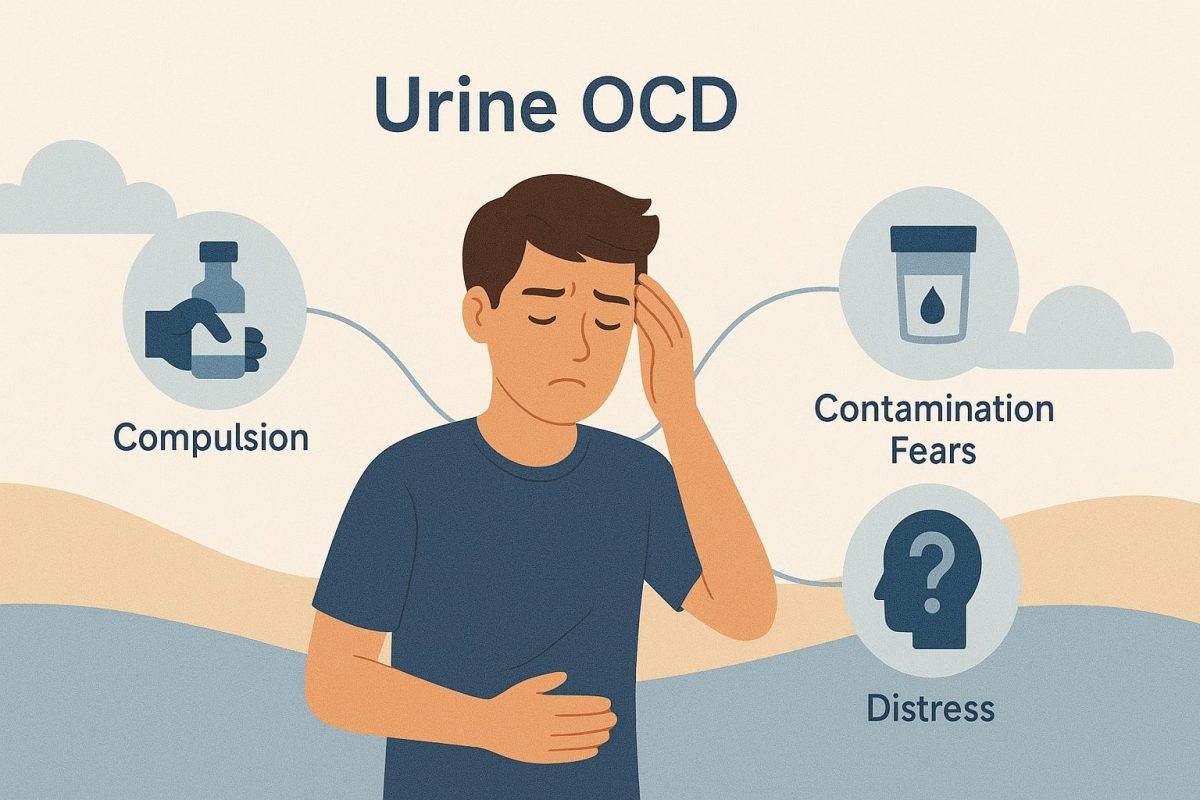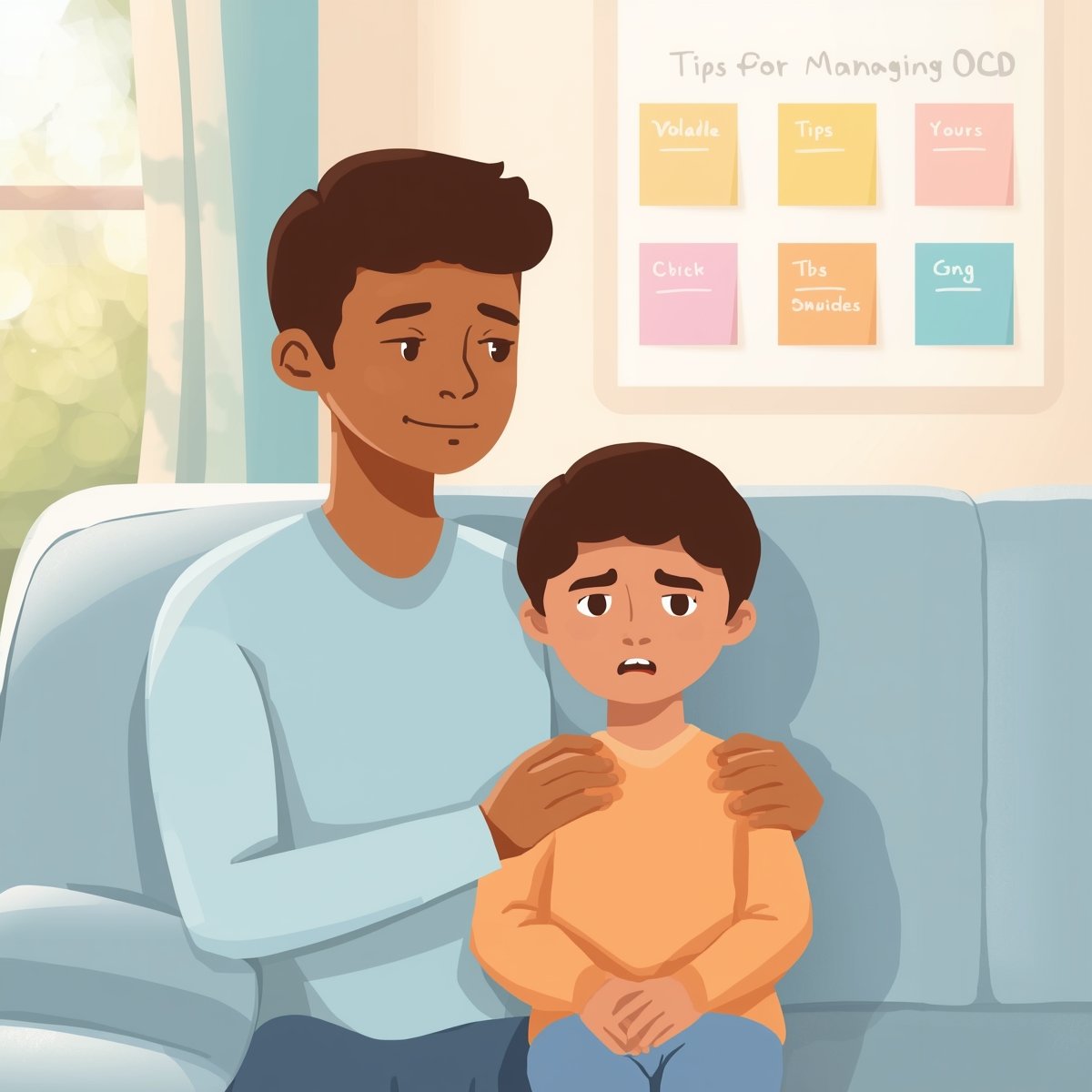Urine OCD is a troubling and frequently misunderstood form of obsessive-compulsive disorder characterized by persistent thoughts, imagery, or rituals centered on urine, urination, or similar bodily fluids. If you find yourself constantly worrying about touching urine, believing you smell like it, fearing you’ve contaminated something with it, or engaging in specific routines related to toileting, you might be dealing with Urine OCD. These intrusive and unwanted thoughts lead to compulsive behaviors such as washing, checking, avoiding restrooms, or seeking reassurance that only momentarily alleviate anxiety and ultimately perpetuate the issue.
Urine OCD varies among individuals. Some may worry about urine contamination and resort to excessive cleaning or avoidance. Others may experience distressing shame-related imagery involving urine, which they find deeply unsettling; these thoughts conflict with their personal values and can induce considerable guilt. Another variant involves health concerns, where individuals misinterpret normal urinary sensations as indicators of illness. Given that urine is both a personal and socially sensitive bodily fluid, obsessions surrounding it can result in significant shame, secrecy, and social withdrawal.
Causes of Urine OCD
The reasons urine becomes an obsession differ from person to person.
- Psychological causes: Traits such as perfectionism, a heightened sense of responsibility, strict moral standards, or intolerance for uncertainty can exacerbate obsessive thoughts.
- Environmental factors: Traumatic bathroom experiences, strict hygiene upbringing, or cultural taboos regarding bodily fluids can cultivate urine-related fears.
- Learned experiences: Childhood scolding for “making a mess” in the bathroom can evolve into adult fears of contaminating others.
Common Actions During Urine OCD
1. Overchecking of Urination
- Repeatedly checking to see if the bladder is fully emptied.
- Urinating again immediately after finishing, even without urge.
- Frequent checking of clothing for wetness or leaks.
2. Repeated Cleaning
- Excessive washing of hands, genital areas, or the bathroom.
- Using large amounts of soap, water, or tissue to feel clean.
- Avoiding public restrooms and changing outfits multiple times daily.
3. Avoidance of Triggers
- Skipping long trips or social events without clean bathroom access.
- Limiting fluid intake to avoid public urination.
- Avoiding touching door handles, toilet surfaces, or public washrooms.
4. Seeking Reassurance
- Frequently asking questions like “Do I smell like urine?” or “Does it seem like I’ve wet myself?”
- Temporary relief through reassurance, which reinforces anxiety long-term.
5. Strict Urination Rituals
- Following a fixed order for wiping, washing, or flushing until it “feels right.”
- Repeating rituals multiple times daily, consuming hours of time.
6. Heightened Body Awareness
- Constant monitoring of bladder sensations or pelvic area.
- Misinterpreting normal sensations as signs of medical issues or loss of control.
7. Changing Clothes and Laundry
- Changing clothes or underwear frequently, even when clean.
- Washing clothes separately or multiple times due to contamination fears.
- Avoiding certain furniture or beds to prevent “spreading germs.”
8. Overuse of Hygiene Products
- Using disinfectants, wipes, and sprays excessively at home or in public.
- Applying perfumes or deodorants to mask imagined odors.
9. Constant Medical Validation
- Frequent doctor visits for bladder or kidney checks.
- Requesting unnecessary urine tests or researching urinary issues online.
10. Avoiding Intimacy
- Withdrawing from physical contact or relationships due to shame and fear of contamination.
Emotional Impact of Urine OCD
These behaviours lead to deep emotional stress, shame, and guilt. Many individuals feel trapped, knowing their fears are irrational yet unable to stop. This obsession often causes social withdrawal, relationship issues, and fatigue from constant vigilance.
Treatment for Urine OCD
Urine OCD is highly treatable through structured therapy and coaching approaches.
Cognitive Behavioural Therapy (CBT)
Helps identify and challenge distorted beliefs, such as equating thoughts about urine with being unclean or dangerous.
Exposure and Response Prevention (ERP)
Gradually exposes individuals to triggers like touching bathroom surfaces or delaying washing while preventing compulsions, allowing natural reduction in anxiety.
Acceptance and Commitment Therapy (ACT)
Teaches acceptance of intrusive thoughts and focuses on valued actions rather than elimination of anxiety.
Wellness Coaching
Supports healthy routines, stress reduction, and consistent exposure practice while maintaining daily responsibilities.
Personality Dynamics Correction
Addresses perfectionism, responsibility, and moral rigidity that maintain OCD, helping develop self-compassion and balance.
Healthy Coping Strategies
- Grounding through five senses and paced breathing.
- Limited hygiene checks instead of repetitive washing.
- Labeling intrusive thoughts (“That’s an OCD thought”) and continuing daily activities.
Success Stories
Success Story I – Dheeraj (32, Software Engineer)
Dheeraj used to spend 20–30 minutes cleaning himself after urinating. Through CBT and ERP with ACT techniques, he reduced checking by 96% and regained confidence at work and in public.
Success Story II – Shruti (27, Medical Student)
Shruti developed intense fear after hospital exposure to catheters, washing her hands dozens of times daily. With ERP, wellness coaching, and personality correction, her compulsions reduced drastically, and she now uses public restrooms without fear.
FAQ
1. What are the common symptoms of Urine OCD?
Persistent anxiety about being unclean or smelling of urine, repeated washing, checking for leaks, and reassurance-seeking behaviours.
2. How is Urine OCD different from medical conditions like incontinence or UTI?
Unlike medical conditions, Urine OCD is psychological. Tests show normal results, but obsessive fears persist mentally.
3. Can men and women both have Urine OCD?
Yes. Men may focus more on leakage or control, while women may focus on hygiene and odor. Hormonal and stress factors can influence severity.
4. Can Urine OCD cause physical discomfort?
Yes. Anxiety can cause psychosomatic bladder pressure, frequent urges, or pelvic tension even in the absence of medical problems.
5. Can Urine OCD be completely cured?
With early and consistent therapy, most individuals recover significantly or achieve full remission.
Conclusion
Urine OCD is a sensitive but treatable condition. Recognizing it as a psychological issue rather than a moral flaw is key. Therapies like CBT with ERP, ACT, wellness coaching, and personality work help individuals regain peace and normalcy.
If urine-related fears are affecting your daily life, reach out to our team at Emotion of Life.
Call: +91 9368503416
Website: www.emotionoflife.in
Email: info@emotionoflife.in









